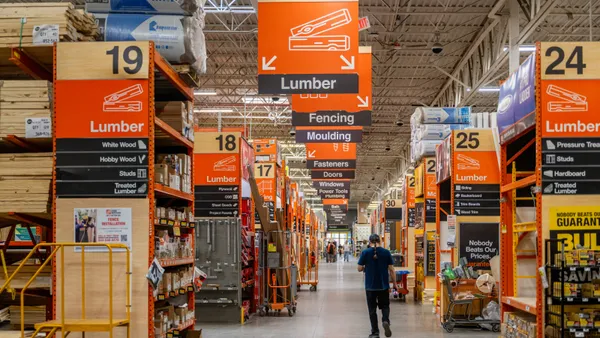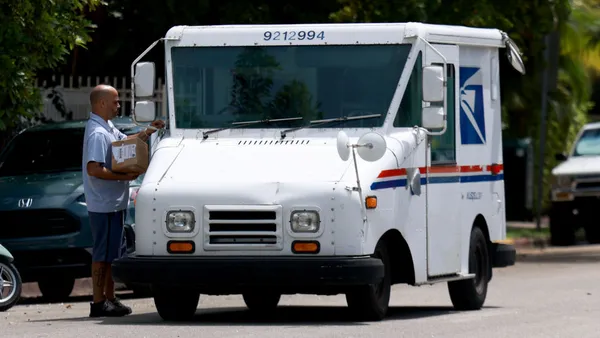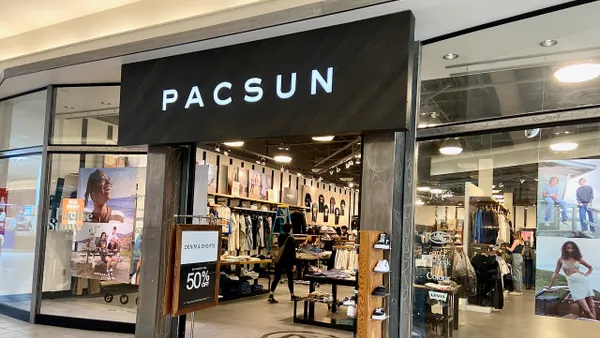Dive Brief:
- FedEx is testing a hydrogen fuel cell, zero-emission delivery van on one of its delivery routes near Albany, New York. The van, developed by Workhorse and Plug Power, has been delivering packages on the route for two months, Dustan Skidmore, vice president of engineering at Plug Power, told Supply Chain Dive.
- The hydrogen fuel cell van has a range of 160 miles, an increase over the 90-mile range of FedEx's electric battery powered vehicles, which was too short for many of the logistics provider's routes.
- After six months, if FedEx is satisfied with the van, Workhorse and Plug Power will deliver an additional 19 hydrogen fuel cell delivery vans, bringing the total fleet to 20, Skidmore said.
Dive Insight:
Think hydrogen power, and you might flash back to images in history books of the Hindenburg disaster. But the technology for liquid hydrogen is mature and extremely safe, Skidmore said, with existing use cases in food purification and coolants.
The technology is spreading to the auto industry, with manufacturers developing hydrogen fuel cell vehicles (FCVs) and hydrogen fueling stations appearing in Europe and California.
While the environmental impacts of FCVs are similar to those of electric vehicles (EVs) (both are zero emission), fuel cells offer a few benefits to logistics providers looking to adopt the technology in their fleets.
EVs can only travel as far as their electric charge range. But increasing the range on FCVs is as simple as adding an additional fuel cell.
"We were able to put the fuel system into the truck without sacrificing any of the space inside the truck," Skidmore said of Plug Power's project with FedEx. Optimizing van space was critical for FedEx to ensure it didn't have to reduce its parcel volumes per truck.
A larger range means reaching more customers along a single delivery route, putting a 3PL ahead of its competitors. In addition, logistics providers don't have to wait eight hours to recharge an electric battery. Refueling FCVs is very similar to filling a tank at the gas station, and takes just a few minutes.
One of the most appealing advantages for logistics providers — the fuel cells can help their bottom line. "It's more cost effective to buy a fuel cell system and operate it than it is a battery," Skidmore said.
But both EVs and FCVs are still more expensive than combustion engines. In addition, hydrogen infrastructure is in the early stages, which makes fueling stations sparse.
If the "goal is green," however, Skidmore said fuel cells offer great benefits to carriers as well as shippers.
"You've chosen to put money into a vendor that has a green infrastructure," he said, which can boost sustainability goals and brand reputation for the shipper.














